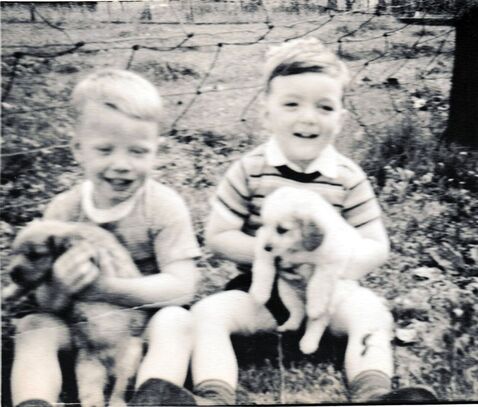 Sweetpea and Sluggo (Sandy Goodlett and Davy Fallis). Sweetpea and Sluggo (Sandy Goodlett and Davy Fallis). Only two children appear in The Last Resort, my dad’s 1943 Salt River journal: Sweetpea and Sluggo. The affectionate nicknames Pud had for his first two nephews tell you everything. In March 2018, I memorialized Sluggo, aka Dave Fallis, the elder son of my dad’s sister Virginia Fallis, when he died after a long illness. Today, I honor Sweetpea, aka Robert Dudley “Sandy” Goodlett, the first son of my dad’s brother Billy Goodlett, who died unexpectedly Monday after a brief illness. When David Hoefer, the co-editor of The Last Resort, suggested that we annotate many of the personal and historical references in the journal to provide a more fulsome picture of Pud’s world, I knew we had some work to do. David researched most of the historical and technical details. I started digging up information about Pud’s family circumstances and his Lawrenceburg friends. The first person I called was Sandy. He was the Goodlett family historian, and he had sustained ties to Lawrenceburg longer than the rest of us. David and I met with Sandy in his office in the building I still think of as the old post office, and we peppered him with questions. He was able to answer most of them, and I think he reveled in being a critical informant for our project. Soon I realized I wanted to make a trip to the Atlanta area to talk to a couple of the “boys” who used to join my dad at his Salt River camp: my cousin John Allen Moore and Lawrenceburg native Bill “Rinky” Routt. Sandy said, “Let’s go.” We picked a date and Sandy drove me and our cousin Bob Goodlett to Atlanta and back. During that trip, we were also fortunate to spend some time with John Allen’s younger brother, Joe Moore, and with Lawrenceburg natives Eugene Waterfill and Mary Dowling Byrne. It was a magical trip. And Sandy made it happen. Today, of all my dad's family and friends we visited, only Joe Moore survives. Sandy was always unselfish with his time and his wisdom. If I planned a family gathering, I knew he’d be there. In his van, we discovered we could talk for eight straight hours and still learn something new. When Sandy died, I lost not only a beloved cousin and my go-to guy for all Goodlett family questions. I lost one more connection to the father I never really knew. I’ve laughed this week with some family about Sandy’s rare equanimity and quietude in times of crisis and distress. That is not a typical Goodlett trait. Most of us are hard-headed and opinionated and high-tempered. We are intense and hard driving. Sandy kept his intelligence and his passion quietly under wraps. And when he offered us a glimpse, it was usually accompanied by that inimitable grin. If we want to honor Sandy, we should all strive to approach life’s vicissitudes with his calmness and acceptance. We should strive to be as kind and caring as he was. And we should strive to love our family half as much as he did. Read Sandy's obituary.
11 Comments
 The old Iowa State Penitentiary. The old Iowa State Penitentiary. Bob Patrick, of Berea, Ky., a retired attorney of unquestionable probity, reveals a little skulduggery that shaped his family history. If you would like to submit a post to Clearing the Fog, please contact us here. My father grew up in far northwest Iowa, where the family had moved after the Civil War. Apparently Indiana was simply too crowded. During the Depression, my Dad and his older brother would hunt rabbits and other game for food. My grandfather was a bookkeeper in a local business and about the time my Dad started high school, my grandfather was arrested for embezzlement. I'm not certain of the amount, but it earned my grandfather several years in the Iowa Penitentiary in Ft. Madison. So the entire family—my grandmother, three sons, and one daughter—moved to Ft. Madison, in the southeastern corner of the state. My grandfather, in addition to his peculiar accounting skills, had experience in farming. He became a trustee, taking care of chickens and living on the prison farm, making family visits easier. It was during this period that my father met my mother, both attending the Ft. Madison High School. My father and his older brother went on to the University of Iowa in Iowa City, ultimately to dental school and medical school, respectively. When my grandfather was released from prison, he and the rest of his family also moved to Iowa City, where my grandfather took a job at a local savings and loan. During my uncle's final year in medical school, my grandfather was caught stealing money from the savings and loan where he was employed. The bank president said he would not press charges if: (a) my grandfather left the state, and (b) the money was repaid. My uncle had just gotten a position with a medical practice in Taft, Calif., and my grandfather and grandmother joined him there. At the beginning of WW II, Taft, a desert community, was about as barren as northwest Iowa, so there was a fit. My Dad and his brother were able to repay the money. Almost 30 years later, I married the granddaughter of the president of that savings and loan. He and his wife were at several Christmas dinners I attended at my wife's parents. No one but he and I knew of this connection. 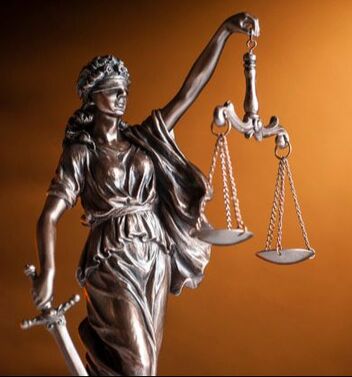 On count 1: Guilty On count 2: Guilty On count 3: Guilty And I sobbed. I had been sitting in my backyard intending to read, but all I was really doing was staring at the electric pink blossoms still gripping the redbud trees and watching the wind ripple the water on the lake. I had a lot on my mind, so I never even cracked open the book. When the clouds moved in, I got a little chilly so I went inside and absentmindedly turned on the news. I saw that a verdict in the Derek Chauvin case was expected momentarily, so I sat silent, my heart racing. When the judge walked in the courtroom, my anxiety rose. I told myself I couldn’t expect these jurors to do what so few others had ever done before. But they did. They found Officer Chauvin guilty, in the eyes of the courts, of murdering George Floyd. I am not Black. I’m still trying to grasp the reality of systemic racism. I have never been followed by the police or interrogated for suspicious behavior. I have never lost a family member to police brutality. But I sobbed like a baby after Chauvin was convicted. The last couple of weeks have been so difficult. First it was Daunte Wright. Then Adam Toledo. Multiple mass shootings. Even for a privileged bystander, it never, never seems to end. But today we got a little relief. A brief glimmer of hope that something, something could change. That justice was possible. Many are telling us not to read too much into this one verdict. It doesn’t change the family’s grief. It doesn’t change the fact that more Black lives were taken by police today. It doesn’t diminish the fear some parents have each time their child leaves home. It doesn’t change the flagrant racism and hatred we continue to witness in our country. But maybe this will help us find the strength to keep fighting for right. Perhaps it will prevent us from giving in to despair. I am relieved. I am even a little hopeful. Perhaps Mr. Floyd has indeed changed the world. 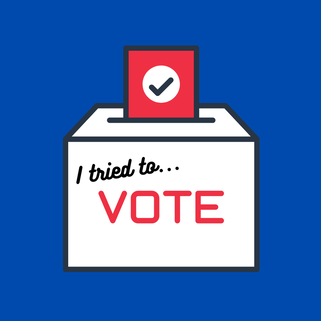 Cathy Eads, of Atlanta, Ga., questions her governor's support for the Election Integrity Act of 2021. If you would like to submit a post to Clearing the Fog, please contact us here. “Are you a politician or does lying just run in your family?” ― Fannie Flagg, Fried Green Tomatoes at the Whistle Stop Cafe “Everyone is entitled to his own opinion, but not to his own facts.” ― Daniel Patrick Moynihan Oh, Brian Kemp, you never cease to disgust me with your strident attempts to misrepresent voter suppression as some sort of election protection. Let’s get one thing straight right off the bat: You are likely the governor of Georgia because you assumed the roles of both player and umpire in that political game. I know of no other instance, in a democracy, where the candidate has also been the officiant of the race. Even former Georgia Representative Karen Handel, who has her own record of supporting right wing policies that hurt a vast number of her constituents, resigned her position as Georgia Secretary of State to run for governor in 2010. Maybe signing this legislation to limit access to voting is an attempt to show 45 that you really do believe the Big Lie—and get back into his better graces. After all, when you refused to reject Georgia’s results of the 2020 presidential race, 45 did threaten you specifically with retaliation during your upcoming re-election campaign. Honestly, Governor, I think you hurt yourself more than 45 ever could have by passing that Voter Suppression Law in a private signing while having Georgia House Representative Park Cannon unlawfully arrested for knocking on the door of the signing room. I mean, did you watch the cell phone video(s) of her arrest? Don’t you know that the best way to motivate proud, hard-working people to sure as hell go out and do something they have a right to under the law is to try to tell them they can’t, or that you are gonna make it harder for them to do it? Oh yeah, you do, you are a gun rights supporter. Well, let’s just say you and Georgia’s Republican state legislators have motivated the weary opposing team more than any half time Super Bowl coach’s pep talk ever could. I’m willing to bet that you’ve moved some of your moderate supporters to switch sides to save democracy as we know it, imperfect as it is. Georgia’s new Voter Suppression Law has pushed voter protection, and hopefully passage of H.R. 1, the For The People Act, to the forefront of federal legislative priorities for pro-democracy Congress members. So, thank you for that! Governor, please stop referring to voter suppression laws as a means of ensuring election integrity. This idea is built on The Big Lie and it’s an insult to your intelligent constituents. It’s a show of your desperation to hold on to power, and of your lack of personal integrity. 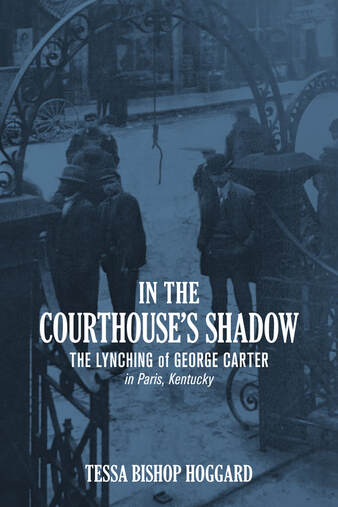 Tessa Bishop Hoggard has written a compelling book about the people and events surrounding one of the more than 350 extrajudicial lynchings in Kentucky. Tessa Bishop Hoggard has written a compelling book about the people and events surrounding one of the more than 350 extrajudicial lynchings in Kentucky. On May 25, 2020, Derek Chauvin, a white Minneapolis police officer in his mid-40s, evidently decided that 46-year-old George Floyd’s alleged infraction of passing a counterfeit twenty-dollar bill should cost him his life. Three other officers watched as Chauvin kept his knee on Floyd’s neck for 9 minutes and 29 seconds—even longer than we had originally understood. Despite exhortations from the other officers and the citizens standing nearby, despite Floyd’s pleas to let him breathe and his invocation of his recently deceased mother, Chauvin kept his knee on Floyd’s neck until he was no longer breathing. And then he kept his knee on his neck for another three and a half minutes. Chauvin’s defense attorneys have posed a number of counterarguments during the initial days of the trial, including that Floyd had illicit drugs in his system, that he had a heart condition that contributed to his death, and that his physical size made him a threat to the officers even after he was handcuffed and lying face down on the ground. Over the past 10 months we have learned a bit more about George Floyd and his family. We know he was a college athlete who struggled to stay in school and struggled with addiction. He spent some time in prison. We know he had moved from Houston to Minneapolis to try to turn his life around. During the trial, we saw his fiancée describe his kindness when he had first approached her at the Salvation Army where he was working security. For months we have witnessed the courage and the oratory and the passion of Floyd’s siblings and his cousins. We’ve seen the confusion of his bright-eyed young daughter whose father is now famous. He has come to feel like someone we knew, like someone we might encounter joking around at a corner market just like Cup Foods. That’s what Tessa Bishop Hoggard has accomplished in her book In the Courthouse’s Shadow. Through diligent research, she has fleshed out the story of one heretofore anonymous young Black man who was lynched in Paris, Ky., in 1901 after being accused of a minor crime. Like George Floyd, George Carter had previously run afoul of the law but was trying to settle down with his young family and build a good life. Like Floyd, Carter never had a chance to claim his innocence or plead his case. A group of white men with power in his community decided that he should pay with his life for a crime that we have no evidence ever even occurred. We also learn that others who endured a fate similar to Carter’s were described in the press the same way, whether accurate or not: “burly negroes over 200 pounds.” As in Floyd’s case, physical size—or perceived physical size—justified illegal actions. In Hoggard’s book, we learn about Carter’s family, their hopes and their dreams, and what happened to them after he was killed. We learn the fate of his two young daughters. We also learn about the family of the white woman who identified him as the man who had assaulted her, a crime that was originally reported as an attempted purse snatching. We learn about the fate of her eight-year-old son, who witnessed the assault and helped the sheriff identify Carter as the assailant. We learn that George Carter, like George Floyd, was a father, a son, a brother—a human being. He was not just a statistic of early 20th-century racial injustice. Just as George Floyd was not merely another victim of 21st-century police brutality. This is a problem our nation obviously has not solved. On March 18, during a House Judiciary Committee hearing on anti-Asian American violence and discrimination, Republican Congressman Chip Roy of Texas said, “We believe in justice. There are old sayings in Texas about find all the rope in Texas and get a tall oak tree. We take justice very seriously. And we ought to do that. Round up the bad guys. That's what we believe." Afterwards Roy refused to apologize for his choice of words and doubled down on the language. As columnist Charles Blow recently wrote in the New York Times: “It is hard not to draw the through-line from a noose on the neck to a knee on the neck. And it is also hard not to recall that few people were ever punished for lynchings. Motionless Black bodies have been the tableau upon which the American story has unfolded…” Those who witnessed George Floyd’s murder have testified about their sense of helplessness at the time and the enormous guilt they still carry. Some videotaped the crime and shared it with the world in horror. Those who discovered George Carter’s body hanging in front of the courthouse on that cold February morning tarried at the scene and took photos, seemingly proud of the town’s latest trophy and the message it sent. Is that a sign of some progress in the last 120 years? Are we finally beginning to push back on these unforgivable acts of oppression and subjugation? What would we do if we found ourselves witnesses to such a crime? Would we simply stand by and watch, as the two doormen in New York recently chose to do as a 65-year-old Asian American woman was being assaulted on the sidewalk in front of their building? Or would we find the power to act? In 1901, George Carter was only 21 years old when he was lynched. I wonder if he, in his final moments, silently called for his mother. Murky Press is proud to offer In the Courthouse’s Shadow: The Lynching of George Carter in Paris, Kentucky through Amazon or by contacting Murky Press directly here. We encourage you to recommend the book to others or post a brief review on Amazon to help spread the word.
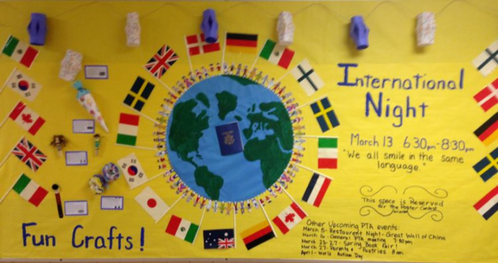 An elementary school bulletin board celebrating International Night, which includes the slogan “We all smile in the same language.” An elementary school bulletin board celebrating International Night, which includes the slogan “We all smile in the same language.” Cathy Eads, of Atlanta, Ga., reflects on her experience raising a family in a multi-cultural community. If you would like to submit a post to Clearing the Fog, please contact us here. Daoyou Feng was 44 when she was shot and killed in the Asian hate crime spree in Atlanta on March 16. According to The Atlanta Journal-Constitution, she had only been working in the spa a few weeks when she was murdered. She was a Chinese citizen with no known family in the United States and no family able to travel to the U.S. to bury her. She was one of six Asian American women out of a total of eight victims shot to death during the multi-site killings. For 17 years I lived in a suburb of Atlanta that has a very large Asian and Indian population. My children had friends, classmates, and neighbors from Pakistan, India, South Korea, and Japan. Their elementary school displayed the flags from the countries of students’ families. The technicolor array of banners encircled the entire cafeteria. The PTA staged an international night each spring that included a smorgasbord of delicious authentic dishes lovingly prepared by many of these families. Warm friendly smiles animated their faces as they proudly served up, and showed off, the delicacies of their home lands. The high school had a similar event that featured native dress, dances, and other performing and cultural arts. When my son entered college at the University of Kentucky, he said, “Mom, it just feels a little weird being around so many white people all the time.” When my daughter was young, I co-led a 12-member Girl Scout Troop with a mix of Asian, Indian, and Caucasian girls. They were as varied in personality and temperament as any group of girls could be—because they were all individuals, of course, not just because they had ancestry from different continents. Moving to Georgia from Kentucky, I’m glad fate drew us to our particular neighborhood so my family got to know, and appreciate, the richness of many cultures, and to work, learn, and socialize with people from so many different backgrounds. Whether they were from Houston or Hyderabad, Seoul or South Carolina, we are better humans for knowing them. Just like I’m sure there are people who are better humans for knowing Daoyou Feng. Can we stop hate that’s planted and nurtured in dehumanizing otherness? Can we find a way to instill in every heart and mind that human beings are all, first and foremost, fellow human beings—all valuable, all equally entitled to live life with respect and dignity? I haven’t given up hope that we can cultivate compassion for all of humanity. Impossible as it may seem, I also believe that we must. I guess the most important question is, how? |
Details
Archives
June 2023
Categories
All
|

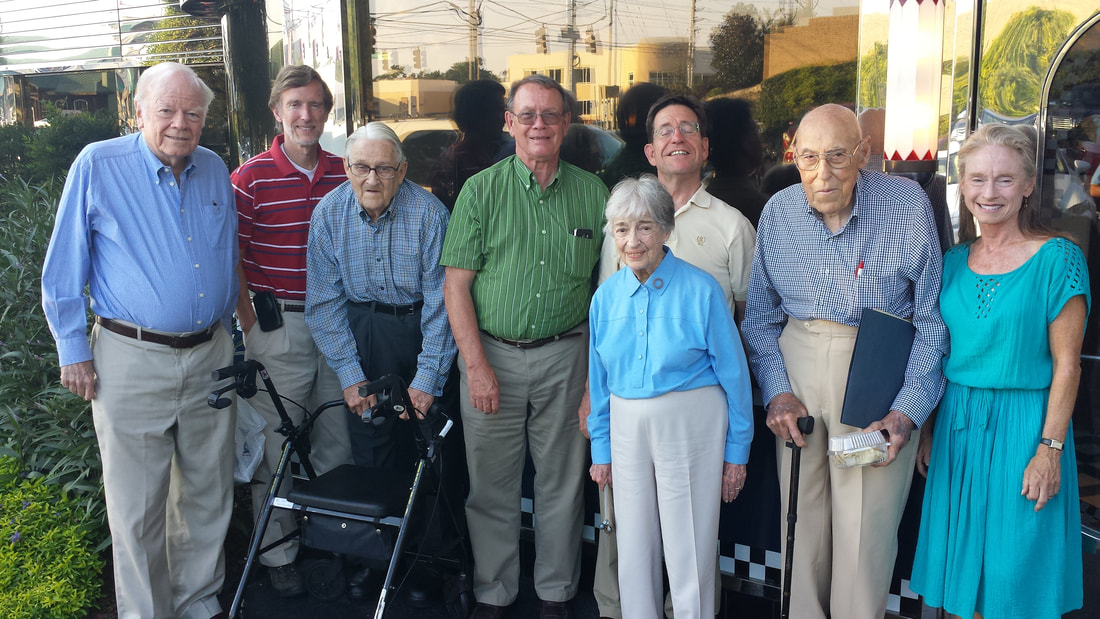

 RSS Feed
RSS Feed